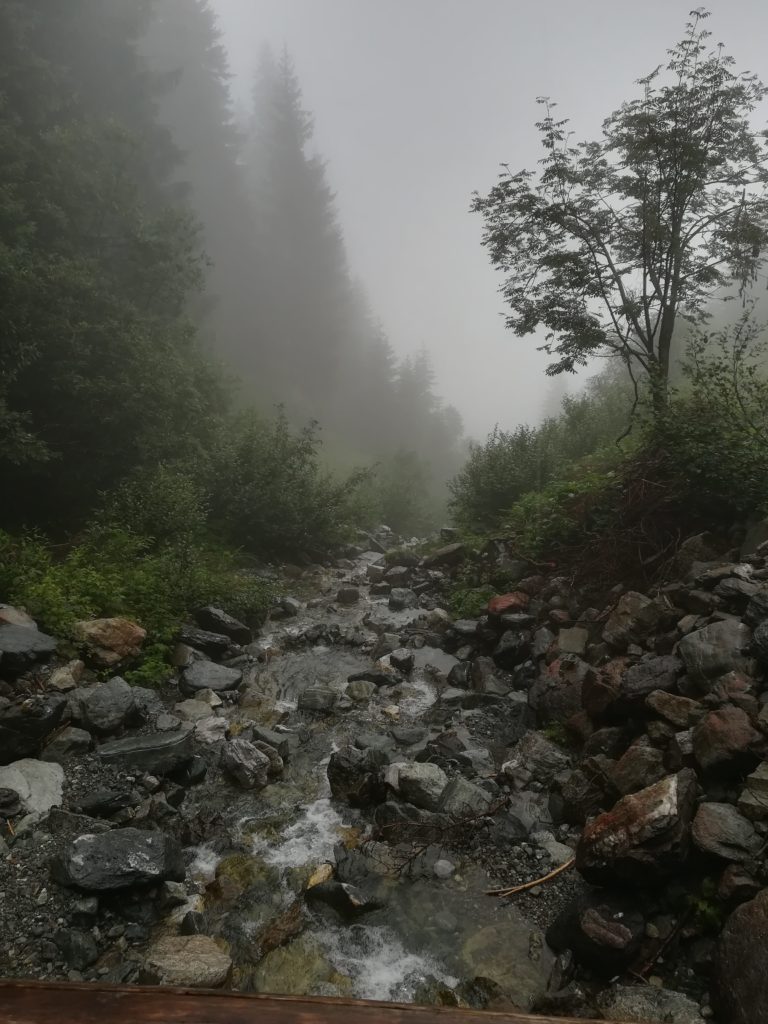To the one standing, blinking, in the rubble,
Welcome.
Welcome to the other side, to the bottom of the slippery slope, to the edge of the exhilarating wilderness. You are the one they warned you about.

Should I introduce myself? I’m not an expert in much of anything; only I’ve been out here for a while now. I watched the high tower of my own religion crumble around me and arrived here, exhausted and broken and without a map.
I know everything you’re feeling—and, of course, I know absolutely nothing you’re feeling. I don’t know if you’ve slowly dismantled everything you once held dear, or if you’ve been blindsided by the spectacular, irresistible implosion of it. I do know “deconstruction” is too tidy a term for your story; I know labels and categories are too convenient to contain the betrayals and losses you grieve.
Even when you have stumbled upon the welcoming committee, this can be a lonesome place. That doesn’t have to be all bad. If I tell you you will feel belonging again—can you accept the lonesomeness? If I tell you the worst has already happened, there’s not so much to fear out here—can you believe this barren-looking place could be fruitful?
This lonely expanse where you feel so lost is inviting you to the very place you need to be. You will look back on this outcast moment as the place you learned to belong to God—and therefore, to yourself.
Maybe it seems abrupt to greet you with congratulations on your loss, but, well, the wilderness is an honest place.
I could try to tell you so much more. I will tell you I’ve already lied a little: the worst has already happened, but it will probably happen again. This is why you must find a way to love this wilderness you were taught to fear: if you can learn to quit resisting and reach for the gifts of these stark, hard places, the next time things fall apart they might not fall quite so apart. It will hurt, deeply, but maybe you won’t be left gasping, clawing, unanchored, frightened. Maybe you’ll find grace—a deeper, vaster, more spacious wilderness grace—waiting to accompany you through.
Here and now, as you arrive on the ground—your high-tower-home in pieces around you—your instinct may be either to run away or to declare that you will rebuild! I’m not here to pretend this place feels comfy, but I am here to offer the third option: stay.
We don’t always talk about what it means to stay. There are aspects of this wilderness we know how to name, like “deconstruction” and “reconstruction.” Then there are the things happening underground, in the dark, in the mystery, that we don’t know how to say. In between “deconstruction” and “reconstruction” is your journey-without-a-name, your transformation, and that is why you are here.
You are not going to live with this sense of homelessness and exposure forever. But you’re not going to escape it by rebuilding from the rubble around you. No matter how discerning you are, or how nicely you decorate the pieces you choose, they’re not going to fit. And they’re not going to stand.
Friend, pick up a busted block from your tower. Find the one called belonging or grace, scripture or body or freedom or joy. Every single one will look like something new before you’re done here. There is something true at the core of each of those cinderblocks—but the piece you need for now will fit in your pocket. It’s a seed. Someone cemented it in, trying to save it for you; your job from here is to set it free.
The tower didn’t fall apart because it needed to be rearranged. It came down because you have work to do outside those careful constructs. You have a truer you and a wider, wilder God and a deeper kind of community to meet.
Say goodbye to the rubble, crack the blocks open, find the seeds—even the ones you’re not sure you want. Then wrap them in a rag, stow it away, and forget it. Your only job right now is to heal. In a wilderness, especially, that takes time; and intuition, interdependence, maybe some luck. Here are some wayfinders to your healers:
acceptance.
desire.
questions that seize you.
unexpected openings.
humility.
the lure of failure.
finding yourself at rest.
scars you keep explaining.
all the vast beauty that tower tried to protect you from.
Someday—eventually—you’ll remember one of your seeds might help you heal, too. You’ll take it out, small and unimpressive, hardly there without its huge, protective, blocky, sensible cinder shell. Brown and hard, it doesn’t look like a wild thing; but you (another you, months-or-years-from-now you) will know it to be one. (Kin, recognized.)
So you will drop it, perhaps without much expectation, into the soil of wherever you are. In its own time, slow and sure, forgiveness or faith or truth or breath or creation or a story you never much liked will blossom and stretch into the sky, a living altar to God’s work in that moment in your life.
And just as those seeds find their place in the earth, one day you will glance over your shoulder and recognize you have not reconstructed a tower at all, but grown an orchard, humble and vast; and you will discover you are at home.
This is gorgeous. May we learn to stay, tend to the wilderness of our lives, and discover gardens and orchards of life in our wake. Amen.
Amen!
Beautiful